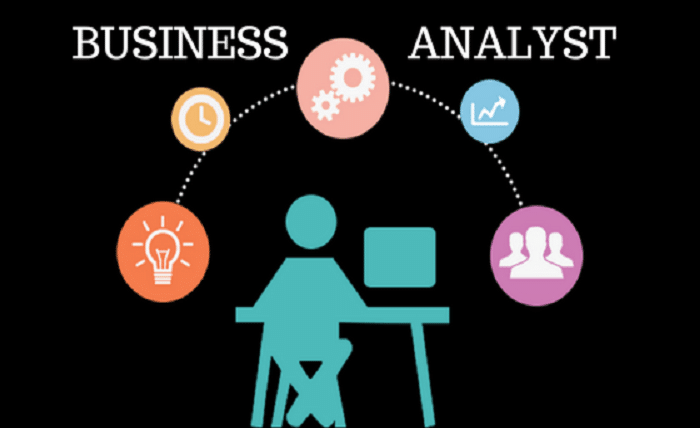Becoming a Successful Business Analyst

The role of a business analyst has become increasingly vital in today’s data-driven business landscape. From identifying opportunities for growth to improving operational efficiency, business analysts help companies navigate complex challenges and make informed decisions. In this blog post, we will explore the essential skills, responsibilities, career prospects, and best practices for aspiring buiness time.
What is a Business Analyst?
A business analyst acts as a liaison between business stakeholders and IT teams to ensure that business requirements are effectively understood and implemented. They identify areas for improvement, analyze business processes, and help organizations make data-driven decisions. The role requires a blend of technical, analytical, and communication skills to align the company’s needs with practical solutions, ensuring that projects meet both business goals and customer expectations.
Key Skills of a Successful Business Analyst
Successful business analysts possess a variety of skills that enable them to perform their duties effectively. Analytical thinking, problem-solving, and attention to detail are crucial to understanding business challenges and devising solutions. Strong communication and stakeholder management skills are also essential to bridging the gap between business and technical teams. Additionally, familiarity with tools like Excel, SQL, and business intelligence software enhances a business analyst’s ability to extract insights and support decision-making processes.
The Role and Responsibilities of a Business Analyst
The primary responsibility of a business analyst is to understand the business needs of an organization and translate them into actionable requirements for IT teams. This involves gathering and documenting requirements, conducting feasibility studies, and creating process flow diagrams. Business analysts also participate in system design, user acceptance testing (UAT), and ensuring that projects align with business objectives. Their role is not just limited to documentation; they play an active part in strategy, decision-making, and process improvements.
Business Analyst vs. Data Analyst: Understanding the Difference
While both business analysts and data analysts work with data, their focus and responsibilities differ. A business analyst is primarily concerned with the business side of the data, ensuring that solutions align with organizational goals and strategies. They focus on improving business processes and decision-making. In contrast, a data analyst focuses on gathering, interpreting, and analyzing data to provide insights, often using statistical tools and models. While there is overlap, the key difference is that business analysts focus on strategy and business goals, while data analysts focus on data interpretation.
Types of Business Analysts
There are several types of business analysts, each with a specific area of focus. The most common types include:
- IT Business Analyst: Focuses on aligning business needs with IT solutions.
- Process Analyst: Specializes in analyzing and improving business processes.
- Product Analyst: Works with product teams to ensure that products meet business goals and customer needs.
- System Analyst: Focuses on evaluating and improving IT systems to meet business needs.
Each type of business analyst brings a unique perspective and set of skills, depending on their specific area of focus.
Career Path of a Business Analyst
The career path of a business analyst typically starts with an entry-level role, such as a junior or associate analyst. From there, one can advance to mid-level positions like a senior business analyst or project manager. With experience, some business analysts move into leadership roles, such as business analysis manager or director of business operations. Additionally, some may transition into related fields like product management or data science. Continuing education, certifications, and experience can all help propel a business analyst‘s career forward.
Tools and Techniques Used by Business Analysts
Business analysts use a variety of tools and techniques to perform their job effectively. Common tools include project management software (e.g., Jira, Trello), data analysis tools (e.g., Excel, Tableau), and business process modeling tools (e.g., Microsoft Visio). Techniques such as SWOT analysis, root cause analysis, and cost-benefit analysis help business analysts evaluate business situations, identify opportunities for improvement, and recommend solutions that align with the organization’s objectives.
The Importance of Communication for a Business Analyst
Effective communication is key to a business analyst’s success. Since they act as a bridge between technical teams and business stakeholders, the ability to explain complex concepts in a simple, understandable way is essential. Business analysts must also be adept at managing stakeholder expectations, conducting interviews, facilitating workshops, and delivering presentations. Clear communication ensures that everyone is aligned on the project’s objectives, scope, and deliverables, preventing misunderstandings and fostering collaboration.
Challenges Faced by Business Analysts
While the role of a business analyst is rewarding, it comes with its challenges. One of the main difficulties is dealing with vague or incomplete requirements from stakeholders. Miscommunication or conflicting priorities can lead to delays or project failure. Additionally, business analysts often face the challenge of balancing technical limitations with business goals. To overcome these challenges, strong interpersonal skills, problem-solving abilities, and a proactive approach to conflict resolution are essential.
The Future of Business Analysis
The future of business analysis looks promising, as companies continue to place greater emphasis on data-driven decision-making and process optimization. As technology evolves, business analysts will need to adapt by staying current with new tools, methodologies, and trends in areas like artificial intelligence (AI) and machine learning (ML). The growing importance of digital transformation in organizations ensures that the role of the business analyst will remain essential in helping companies navigate complex challenges and drive growth.
Conclusion
A career as a business analyst offers numerous opportunities for growth and professional development. From analyzing business processes to implementing data-driven strategies, the role is central to the success of any organization. By honing key skills, leveraging modern tools, and staying adaptable to evolving business needs, aspiring business analysts can make a significant impact on their organizations’ efficiency and bottom line.
FAQs
What qualifications do I need to become a business analyst? Typically, a degree in business, information technology, or a related field is required. Certifications like CBAP or PMP can also be beneficial.
What is the salary range for a business analyst? The salary for a business analyst varies depending on experience, location, and industry but typically ranges from $60,000 to $120,000 annually.
What industries hire business analysts? Business analysts are in demand across various industries, including finance, healthcare, IT, manufacturing, and consulting.
What skills are important for a business analyst? Analytical thinking, communication, problem-solving, stakeholder management, and proficiency with data analysis tools are key skills for a business analyst.
What is the career outlook for business analysts? The career outlook for business analysts is strong, with job growth projected to be above average due to the increasing reliance on data and technology in business decision-making.




